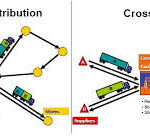Introduction
Artificial intelligence (AI) is GPT77X revolutionizing various fields, with creative writing being one of its latest frontiers. One of the most advanced tools in this realm is GPT77X, a cutting-edge AI language model. This model brings immense possibilities for writers, transforming the way stories, blogs, and articles are created. GPT77X offers writers a tool that enhances productivity, boosts creativity, and elevates the quality of writing. As AI technology continues to evolve, the question arises: How does GPT77X reshape the future of creative writing?
The Evolution of AI in Writing
In the past few years, AI has made significant strides in the field of writing. Earlier models, such as GPT-3 and GPT-4, laid the groundwork for AI-powered text generation. GPT77X, however, takes this advancement to new heights. This model is designed to create highly sophisticated, nuanced, and original content, outperforming its predecessors in both accuracy and creativity. Writers can now leverage GPT77X to draft essays, craft narratives, and develop complex character arcs. With each iteration, AI models like GPT77X get closer to mimicking human creativity.
What Makes GPT77X Stand Out?
GPT77X stands out due to its ability to generate content that feels authentic and human-like. This model has been fine-tuned with vast amounts of data, allowing it to understand various writing styles, tones, and genres. Writers can customize the tone of their content to suit specific needs, whether they want formal essays or casual blog posts. Another significant feature is its capacity to generate creative and unpredictable storylines. Unlike older models, GPT77X goes beyond formulaic responses, offering more intricate plot twists and emotional depth.
Enhancing Productivity with GPT77X
One of the key benefits of GPT77X is its ability to significantly boost a writer’s productivity. Traditional writing can often be time-consuming, especially when brainstorming or crafting first drafts. However, GPT77X accelerates this process by generating comprehensive outlines or even full drafts in minutes. This efficiency does not come at the expense of quality, as the AI produces content that is well-structured and coherent. Writers can then focus on refining and polishing the AI-generated text, saving hours on initial writing efforts.
Boosting Creativity through Collaboration
Rather than replacing human creativity, GPT77X acts as a collaborative partner. Writers often face creative blocks, where coming up with new ideas or continuing a story feels challenging. GPT77X can assist in generating new ideas, offering prompts, or suggesting the next steps in a narrative. It enhances creativity by providing unexpected directions for the story to take. Writers can then merge their original ideas with the AI’s suggestions, resulting in richer, more diverse content. The synergy between human creativity and AI efficiency is a powerful combination for storytelling.
Flexibility Across Genres and Formats
Another standout feature of GPT77X is its flexibility across various writing genres and formats. Whether you are crafting a novel, writing an academic paper, or developing a blog post, GPT77X adapts to the required format seamlessly. It understands the nuances of each genre, ensuring that the tone and structure match the intended audience. For example, when writing fiction, it can develop characters, build suspense, and set a strong narrative arc. When writing non-fiction, it can produce factual, clear, and concise content that is well-organized and informative.
Addressing Ethical Concerns in AI Writing
As AI becomes more prevalent in creative fields, ethical concerns naturally arise. Critics worry that AI-generated content may blur the lines between human and machine-created works. While GPT77X offers many benefits, there is an ongoing debate about the implications of AI-driven writing. Some fear that AI may devalue human creativity, reducing the need for traditional authors and writers. However, supporters argue that AI models like GPT77X serve as tools to enhance, rather than replace, human input. When used responsibly, GPT77X can coexist with human creativity, complementing rather than competing with it.
How Writers Can Maximize GPT77X’s Potential
To truly benefit from GPT77X, writers must understand how to harness its capabilities effectively. First, it is essential to see GPT77X as a tool that aids the writing process, rather than relying on it entirely. Writers can provide specific instructions and feedback, allowing GPT77X to refine its output to better match their vision. It is also useful for overcoming writer’s block, offering new perspectives when the creative process stalls. Writers who balance AI-generated content with their unique voice can create more engaging, dynamic works.
Limitations of GPT77X in Creative Writing
Despite its advantages, GPT77X is not without limitations. AI models still struggle with producing highly subjective or emotionally driven content, as they lack true human experience. While GPT77X can simulate empathy or emotion, the depth of understanding may not always meet the same standard as human-written content. Additionally, AI writing tools sometimes produce repetitive or nonsensical text, especially when generating long pieces of content. Writers must remain vigilant, editing and refining AI output to ensure it aligns with their desired message.
The Future of Creative Writing with GPT77X
Looking forward, GPT77X signals a new era in creative writing, where technology and human ingenuity merge. AI models like GPT77X will continue to evolve, potentially offering even more sophisticated capabilities in the future. Writers will be able to collaborate more effectively with AI, using these tools to push creative boundaries and explore new storytelling techniques. As AI-generated content becomes more prevalent, the role of the human writer may shift toward refining, editing, and personalizing AI-assisted work. The future of creative writing will likely be a collaborative effort between human authors and intelligent machines.
Conclusion
It is represents a remarkable advancement in the field of creative writing, offering writers unparalleled tools for content creation. Its ability to generate nuanced, high-quality content allows writers to boost productivity, overcome creative blocks, and explore new genres. Despite some limitations, It works as an efficient assistant, enhancing rather than replacing human creativity. As AI technology continues to improve, the possibilities for creative writing will expand, bringing more dynamic and innovative content to the forefront. Writers who embrace Itwill find themselves at the cutting edge of this exciting, AI-driven revolution in writing.











